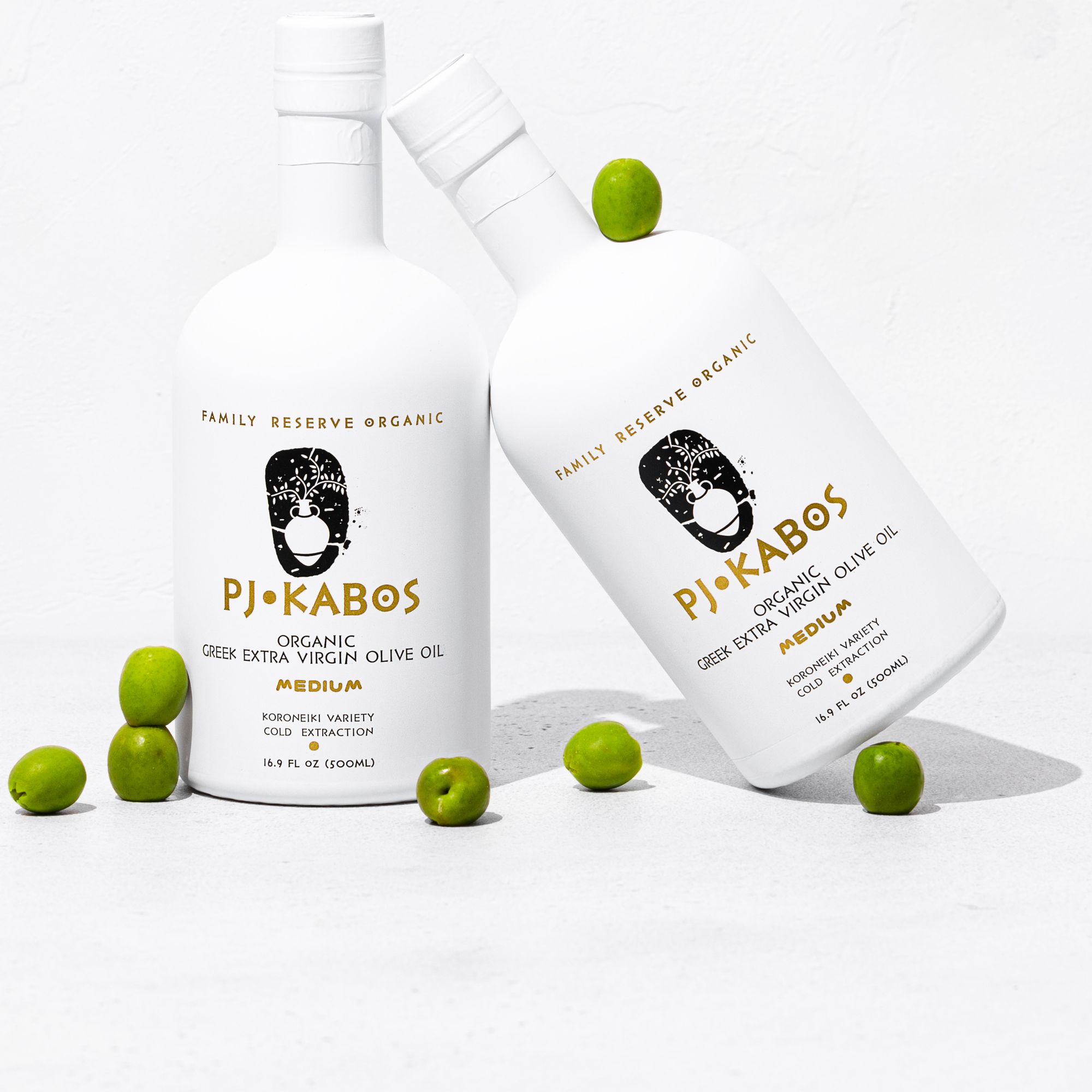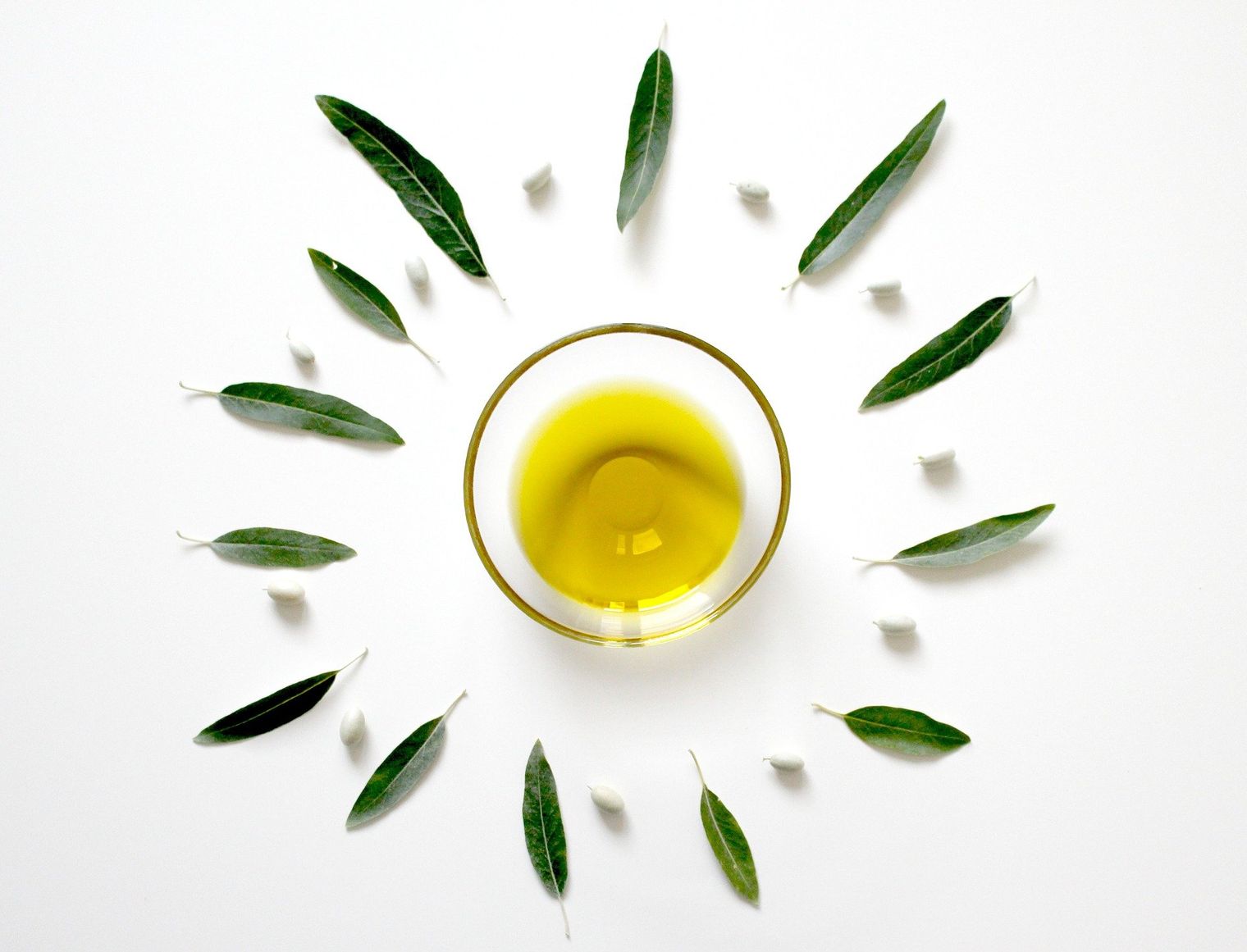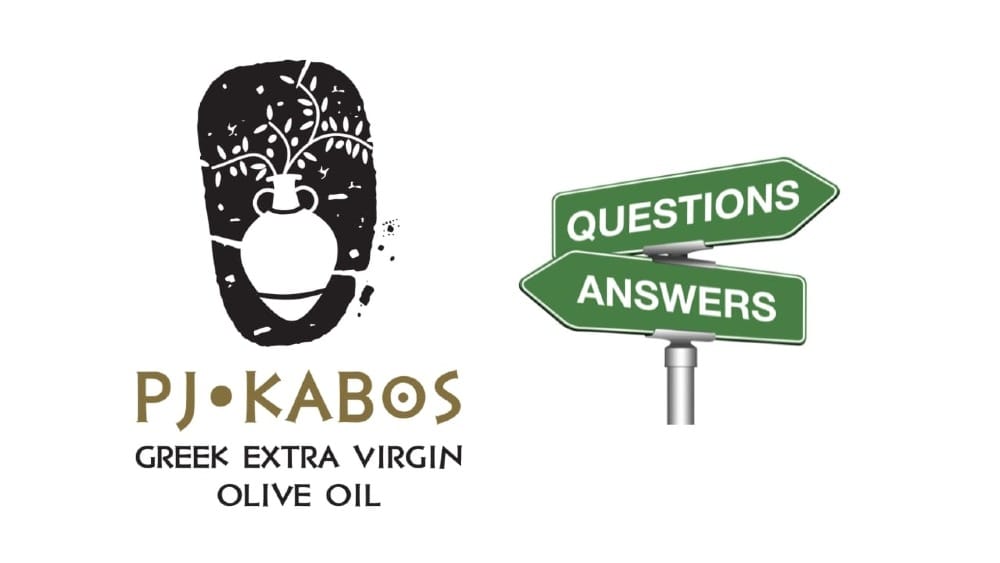We know olive oil as a delicious (and healthy!) cooking ingredient, but its uses were far more wide-reaching in the past. In the times of the ancient Greeks, olive oil was used for lighting lamps, religious rituals, medicine-making, and, yes, as a moisturizer for dry skin. You may have heard that essential oils like lavender oil or grapeseed oil are good additions to your beauty routine, but olive oil is actually one of the best things that you can start to include.
It’s no surprise the ancients reached for olive oil to shine their skin. If you’ve ever hand-tossed some veggies in olive oil or kneaded a loaf of focaccia, you’ll be familiar with the moisturizing properties of olive oil – the silky feeling it leaves on your hands.
Even today, you’ll see olive oil gracing the ingredient list of many beauty products, from hair conditioner to cleanser to hand lotion. However, you don’t necessarily need to buy it pre-mixed into your products to get these skin benefits. Some people use olive oil to remove eye makeup and even to help prevent signs of premature aging. If you’d like, you can moisturize your skin with the olive oil in your pantry. Here’s how to use olive oil for skin dryness.
Is Your Skin Dry Or Dehydrated?
Before we can say whether olive oil can help your dry skin, we’ll need to answer the question: is your skin really dry? Or is your skin actually dehydrated?
While they sound similar, these are actually two separate skin concerns. And, to complicate matters, it’s possible to have both skin ailments at once. We will explain!
What is the difference? Dry skin is a skin type in which the skin has fewer oil-producing glands. Dehydrated skin, on the other hand, is a skin condition in which the skin is lacking water, not necessarily oil. Dehydrated skin can be caused by a variety of external factors, like weather, diet, caffeine consumption, and environment.
Confusing as it may sound, it is also possible for a person to have an oily complexion and dehydrated skin at once, Dr. Ross C. Radusky, a New York-based board-certified dermatologist, explained to Allure.
How Can You Tell If Your Skin Is Dry Or Dehydrated?
Here’s a quick test: Look in the mirror and give your cheek a little pinch. Do you see tiny wrinkles forming around your fingertip? That means your skin is dehydrated. We suggest you pour yourself a glass of water or two.
Other telltale signs of dehydrated skin are tight-feeling skin, redness, inflammation, or seeing wrinkles in places where you usually don’t have them. If this is the case, a moisturizer (whether you use olive oil or any other kind) might make your skin feel better momentarily, but what you really need is some hydration from within.
You don’t necessarily need to drink plain water. As Dr. Radusky told Allure, "Drink plenty of fluids, and eat water-rich fruits and vegetables and essential fatty acids."
Looking for a place to get some fatty acids? Drizzle your dish in olive oil, of course! Olive oil (extra virgin olive oil, in particular) is rich in fatty acids, antioxidants, and vitamins that keep the whole body healthy. (Read all about the science-backed benefits of olive oil here.)
Can You Use Olive Oil For Dry Skin?
Yes, research has found that most people can use olive oil for dry skin (see below for potential side effects). To get the maximum benefits and avoid unwanted side effects, however, you’ll need to apply it properly. Here’s how olive oil combats dry skin.
Olive oil is moisturizing thanks to its high fatty acid content. As cited in respected skincare source Paula’s Choice, the essential fatty acids that benefit dry skin are oleic acid, palmitic acid, linoleic acids, and more.
However, it’s a bit more complicated than this. As explained in Harper’s Bazaar, olive oils (and all other pure oils) only do half the job at hydrating the skin.
Why? There are two main types of moisturizers: occlusives and humectants.
- Occlusives, such as oils and creams, coat the skin and seal moisture inside so it doesn’t evaporate.
- Humectants, on the other hand, attract moisture from the environment or the cream itself and draw it into the skin. Some common humectants used in skincare products are hyaluronic acid and glycerin.
Olive oil is also an emollient, which means it smooths and softens skin, giving it the feeling of being supple and moisturized.
As olive oil, and all other oils, are occlusive moisturizers, you’ll get the best results if you combine them with another product that contains humectants.
How To Treat Dry Skin With Olive Oil
Step 1: Exfoliate
- Exfoliating may help you get more mileage out of your moisturizer. As Fransesca Fusco, an assistant clinical professor of dermatology at the Icahn School of Medicine at Mount Sinai, told Allure, “As dead skin builds up, it can diminish the absorption of moisturizers.”
- Exfoliate your skin at least once a week to remove dead skin so your moisturizer can actually do its job.
- Don’t have an exfoliant on hand? Make your own DIY exfoliating body scrub at home. Healthline suggests mixing coffee grounds or brown sugar with an oil, like olive oil, coconut oil, or jojoba oil.
- Keep in mind that these DIY scrubs should only be used on the body, not not the face. The skin on the face, particularly around the eyes, is very delicate and should be exfoliated with caution.
- Some opt for a chemical exfoliant, which removes dead skin cells without the harsh scrubbing.
Step 2: Apply A Serum
- While skin is still slightly well, start with a serum. Serums are light, active ingredient-packed products that are perfect for layering underneath a heavier moisturizer, like olive oil.
- Choose a serum that contains a humectant, such as hyaluronic acid, so your skin can better absorb the moisture from the environment and your other products.
Step 3: Apply Your Olive Oil
- As olive oil is an occlusive moisturizer – meaning it seals in moisture like plastic wrap – it should be applied at the end of your skincare regimen. That means it should be your last step at night after your makeup remover and face wash, or your last product before sunscreen during the day. If you have another thick, creamy moisturizer you’d like to finish with, that should go on top of the olive oil.
- As Ee Ting Ng, cosmetic chemist and founder of Australian-based skincare brand Hop & Cotton, told Byrdie, "You can use it before or mixed in with your moisturizer."
- Don’t overdo it. All you need is a thin layer of olive oil to feel the benefits. Too much can cause clogged pores, depending on your skin type.
Side Effects Of Olive Oil For Skincare
For some people with acne-prone skin, olive oil could potentially cause a breakout. As Ng told Byrdie, “The fatty acids prevalent in olive oil—and all plant oils and butters in general—are the very food source for acne-causing bacteria and yeasts to grow. Thus, olive oil is not ideal for acne-prone skins.”
Additionally, Additionally, skin damage can affect how your body reacts to olive oil. Some people may have very dry skin caused by a damaged skin barrier. According to Medical News Today, “a 2013 study reported that the use of olive oil for dry skin in adults and infants should not be encouraged. Researchers suggest that it may cause redness and damage to the outer layer of the skin in some people.” If you suffer from any skin conditions like eczema or or psoriasis, you may want to speak with a dermatologist.
What Kind Of Olive Oil Should Be Used For The Skin?
We recommend using only organic, extra virgin olive oil (EVOO) on the skin. Extra virgin olive oil contains the highest concentration of antioxidants and vitamins like vitamin E, which means it will deliver the most active ingredients to your skin.
Sources:
https://www.medicalnewstoday.com
Product placement
PJ KABOS 'Family Reserve Organic - Medium'
High Phenolic and 2022 Gold-Award Winner.
Declared as 'One of the World's Best Olive Oils'.
Click here to shop.





